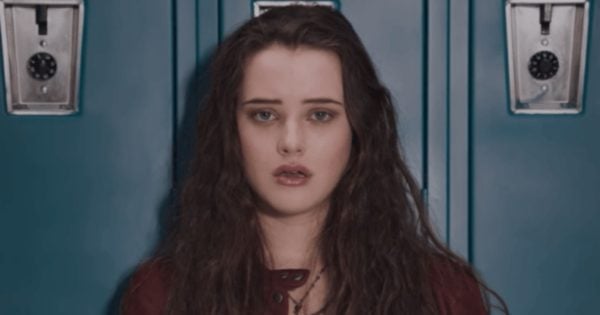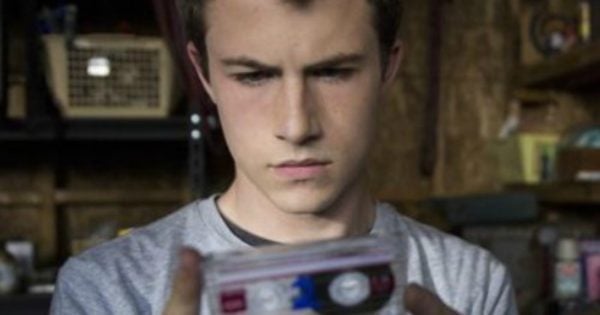In light of recent insights that 13 Reasons Why caused an increase in people searching for suicide methods on Google, which may have led to an uptick in suicide attempts, we decided to resurface an opinion published in April, 2017, about why the final scene in the series should never have been made.
*****
Less than two weeks ago, Netflix released the highly anticipated teen drama 13 Reasons Why.
It begins with Clay Jensen receiving a package containing 13 audio tapes. When he presses play, he hears the voice of Hannah Baker – a close friend who recently died by suicide.
Each tape is for a different person in her life, all of whom are said to have contributed to her death.
Laura Brodnik, Tiffany Dunk and I argue about whether 13 Reasons Why is powerful or problematic, on the latest episode of The Binge. Post continues below.
In the final episode, Hannah’s death is portrayed in graphic detail. The blood, her curdling screams, and the method by which she died has replayed in my mind numerous times since I watched it.
In fact, it’s the first time I’ve found a television scene too graphic to watch in full.
I felt sick.
Headlines have dubbed the show “smart and compelling,” a “brilliant study of teenage life,” with Forbes claiming that it’s Netflix’s “best show in years”. The Quad says, “You must watch ’13 Reasons Why'” and The Fix argues “… there is something relatable in this show for everyone, no matter your age…”



Top Comments
I have been suicidal in the past, never having attempted, but not until watching 13 Reasons Why did I really think about suicide with such reality, and I'm not sure that's a good thing. I was bullied like Hannah was and so her character resonated so strongly with me. I could barely watch the suicide scene and I felt so heartbroken afterwards, so depleted, so shocked. Suicide now has more of a reality to me than it did before because of that scene. Today while doing yoga I started crying because I was thinking about the scene, and I was looking at my own wrists and thinking how easy it would be to cut them, how the blood would just pour out until my heart eventually stopped. I wondered how it would feel to die like that, and I can imagine dying more clearly now, and I don't think it's a good thing, for me. I agree with the author here. Please don't argue with me, of course it may be different for other people, I acknowledge that, I am only saying that in my experience, I think the scene was dangerous.
You should really verify your sources. The link to your source on media coverage "significantly" correlating to increase in suiside does not itself have a proper citation to its source for a similar statement (also there is no mention of any a significant correlation). A quick google search and you can find a submission by the cited author Hassan, R.(the original source) who also fails to properly cite significant research that proves this claim.
Without proper fact checking, this article is nothing but bastardized journalism.
Or an opinion piece from someone who is simply not qualified to talk about this subject.
The show is meant to make you uncomfortable and to give the very serious isues being discussed more than just a "that sucks" thought. And so it worked.